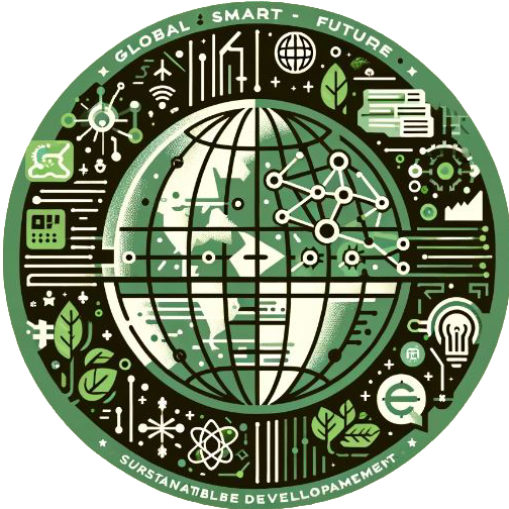GSF › Forums › Blue Carbon Forum › Project Proposal: Blue Carbon Project in the Mekong Delta Wetlands
- This topic has 0 replies, 1 voice, and was last updated 1 year, 6 months ago by
Do Kyong Kim.
-
AuthorPosts
-
2024-07-23 at 4:02 pm #54
Do Kyong Kim
KeymasterProject Proposal: Blue Carbon Project in the Mekong Delta Wetlands
Project Title
Development of Blue Carbon Project in the Mekong Delta Wetlands through Korea-Vietnam Joint Cooperation
Project Background
The Mekong Delta region is severely affected by climate change, and the conservation and restoration of wetlands play a crucial role in carbon sequestration and ecosystem protection. This project proposes large-scale cultivation of microalgae to develop high-value products or bioenergy. The project aims to address climate change and promote sustainable development.
Project Objectives
- Achieve Carbon Neutrality: Cultivate microalgae in wetlands to absorb atmospheric CO₂ and maximize carbon storage capacity.
- Develop High-Value Products: Utilize microalgae to develop health supplements, functional foods, animal feed, cosmetics, and pharmaceuticals, thereby creating economic value.
- Produce Bioenergy: Use microalgae to produce biodiesel, biogas, and bioethanol, providing a sustainable energy source.
Key Activities
1. Large-Scale Microalgae Cultivation
- Build Cultivation Systems: Establish large open ponds or closed photobioreactor systems for large-scale microalgae cultivation.
- Optimize Cultivation Conditions: Optimize conditions such as salinity, nutrients, lighting, and temperature to maximize productivity.
2. Microalgae Production and Processing
- Harvesting and Drying: Implement efficient harvesting and drying processes to convert microalgae into solid form.
- Extraction and Purification: Develop technologies for extracting and purifying high-value components (e.g., omega-3 fatty acids, proteins, antioxidants).
3. Develop High-Value Products
- Food and Feed: Develop health supplements, functional foods, and animal feed from microalgae.
- Cosmetics and Pharmaceuticals: Use bioactive substances from microalgae as ingredients in cosmetics and pharmaceuticals.
4. Develop Bioenergy
- Biodiesel: Produce biodiesel from fatty acids extracted from microalgae.
- Biogas: Produce biogas from microalgae residues through anaerobic digestion.
- Bioethanol: Produce bioethanol from microalgae carbohydrates through fermentation.
Technical Feasibility
Utilize advanced technologies such as satellites, local cameras, IoT, big data, and AI to assess carbon credits and monitor changes in wetlands. This enables accurate estimation of carbon storage capacity and long-term predictions.
Collaborating Institutions
- Korea Environmental Health and Welfare Association (KEHWA): Water resource management, domestic water supply, nano filter, and sterilization technology support.
- Korea Wetland Conservation Union: Wetland ecological restoration, microalgae cultivation, GIS-based big data collection, and analysis.
- Ton Duc Thang University AI Lab: Big data and AI technology support, establishment of pilot sites in the Mekong Delta wetlands.
- Korea Institute of Ocean Science and Technology (KIOST): Support and collaboration in marine biology, marine environment, and marine energy research.
- Korea Marine Environment Management Corporation (KOEM): Marine environment monitoring, creation and management of marine ecosystems.
- Pukyong National University, Korea Maritime and Ocean University: Research on microalgae cultivation and bioenergy, physiological characteristics, and large-scale cultivation techniques.
- Korea Information and Communication Industry Promotion Agency (NIPA): Technology support based on big data and AI platforms.
- VK Energy: Development of renewable energy, wind, and small hydropower.
Funding Utilization Plan
- KOICA (Korea International Cooperation Agency): Support projects for economic and social development in developing countries.
- ASEAN-Korea Cooperation Fund (AKCF): Support joint research and technology transfer programs between Korea and ASEAN countries.
- CTCN (Climate Technology Centre and Network): Provide technical support and implement pilot projects.
- GCF (Green Climate Fund): Provide large-scale funding for climate change response and renewable energy projects.
Conclusion
The project to develop large-scale microalgae cultivation in the Mekong Delta wetlands for high-value products and bioenergy will significantly contribute to climate change response and sustainable development. Collaboration with the Korea Institute of Ocean Science and Technology and specialized universities and research institutes in Korea, along with the utilization of various international funds, will ensure the success of this project.
Attachement
-
This topic was modified 1 year, 6 months ago by
dk.
-
This topic was modified 1 year, 6 months ago by
dk.
-
This topic was modified 1 year, 6 months ago by
dk.
-
This topic was modified 1 year, 6 months ago by
dk.
Attachments:
You must be logged in to view attached files. -
AuthorPosts
- You must be logged in to reply to this topic.
